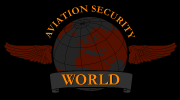Security Consultants
No one questions the importance of airport security these days, especially airport operators, planners, and design teams who recognize the crucial role security consultants play in the development of airports. There are still questions with regard to security consultants—What is their real role? When do we bring security consultants on to the design team? What will they do?
Prior to 9/11, I received a telephone call from a frantic, prospective client (airport operator) who wanted to know if our company could provide security consulting and engineering services for a terminal building expansion project. The airport operator was concerned that the design team did not have the kind of information that would support the airport’s need to ensure compliance with security-related regulatory requirements and design standards. He also wanted to know if we could provide contract documents within a week. I told him it was impossible to meet that schedule, but we could begin working immediately. The client accepted our offer. I contacted the project manager who was surprised to learn that security should be integral to a design team and that there would be interface and coordination requirements during the entire process. The project manager did not inform the design team disciplines that security consultants would be on board and working with the team’s various consultants. The individual disciplines were “doing their own thing” and not coordinating information from a security standpoint. The prospects of unraveling what had been done and coordinating security related information was a serious challenge.
Improving the Process
The following information illustrates how security professionals need to assist with airport projects as they apply to future capital development requirements and new facilities and/or the renovation and expansion of existing facilities:
- Planning Consultants: Need to include security during master planning efforts to ensure that decisions regarding the airport and/or buildings take into consideration that the basic placement of future facilities are appropriate in the context of the TSA security considerations and any future infrastructure.
- Architectural Consultants: Need to coordinate all horizontal and vertical circulation patterns with security to ensure that requirements are not compromised and that portals providing access across defined security demarcations are minimized. This will ensure that appropriate program areas are provided with the necessary security provisions to support operations and related support locations and comply with regulatory requirements and applicable design standards.
- Civil Engineering Consultants: Need to include a security consultant for reviewing drawings as they relate to perimeter issues (i.e. fencing, gates and roadway networks) and structures (i.e. culverts, tunnels and manholes) that provide access across secured demarcations from less restricted and public access areas.
- Landscaping Consultants: Should use security consultants to review drawings that show the placement of vegetation along fences, walls and other types of barriers. The intent is to identify vegetation areas where intruders could hide or where people could climb over the barriers into secure areas. These reviews need to include lighting provisions to ensure that light levels sufficiently illuminate all landscaped areas to prevent and/or detect persons.
- Lighting Consultants: Should ensure that all interior and exterior areas are illuminated and that the light levels efficiently support the use of video surveillance cameras.
- Electrical Engineers: Should coordinate power and conduit requirements needed to support electronic security systems. This is a two-way street because the electrical engineers want to know the primary and secondary power loads for all security systems.
- Mechanical Engineers: Need to identify HVAC and cooling requirements for security equipment. Engineers need to have guidance in designing systems that will consider security and hinder access into buildings and operationally sensitive areas through the air handling ductwork.
- Elevator Consultants: Need to coordinate access control card reader locations, interfaces and installations with security consultants as they pertain to operating the elevators. Video surveillance may require coordinating camera installations inside the elevator cabs and the cabling of card reader devices and video cameras with the elevator traveler cables.
- Telecommunications Consultants: Need to ensure that there are sufficient indoor and outdoor cable plant provisions to support security infrastructure and to ensure that telecommunications rooms are sized and equipped to accommodate security equipment. The coordination process also involves the integration of security and information technology (IT). Many commonly known security systems and provisions are making a move toward the standardization of communicating with their host systems and integrating these with other systems via the TCP/IP 802.11x common communications protocol.
- Baggage Conveyor Consultants: Need to coordinate the installation of card reader devices to control operation and activation of baggage conveying systems overhead doors.
- Door Hardware Consultants: Need to specify locking and egress hardware that interfaces with electronic access control systems. Other requirements include cutouts for intrusion detection devices and electronic locking mechanisms.
- Signage Consultants: Need to ensure that direct line-of-sight camera requirements are not obstructed by signs that are mounted and/or suspended throughout the buildings and security related static signage is properly conveyed at specific locations.
- Fire Alarm Consultants: Need to ensure that electronic security door lock mechanisms, installed on emergency egress doors, release when fire alarms are annunciated.
Conclusion
Security consultants need to be involved in the planning and needs assessment phase of airport development projects. Their participation should continue through programming, design engineering, bid selection, construction administration, systems commissioning and acceptance phases. Having a security consultant on the design teams means crucial security considerations will be taken into account from the onset and the project will less likely have last minute costly and time consuming revisions and change orders.









1 Comments:
Yes a Security Consultants should ensure completion and deliverance of projects timely and in the budgetary confines as well.
Post a Comment
<< Home